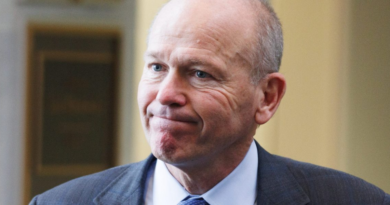Lurching to the right on migration won’t save Europe’s mainstream parties. Here’s why
Catherine de Vries is Dean of International Affairs and Professor of Political Science at Bocconi University.
After years of policies tending toward the relatively broad embrace of migrants and refugees, growing anti-immigration sentiment across Europe is pushing governments and legislation to the right.
The EU has backed tough new migration rules. The Migration Pact, recently adopted by the bloc, is a raft of laws expanding the criminalization and digital surveillance of migrants. It proposes the detention of unaccompanied minors deemed a potential security risk and could lead to migrants being detained for up to six months.
Independently of the EU, Emmanuel Macron’s administration in France has passed hardline legislation that even far-right leader Marine Le Pen celebrated. In the U.K., there are calls for the Conservative Party during the upcoming elections to embrace the fiercely anti-migration politics of Nigel Farage, who has taken the helm of the right-wing Reform Party. These hostile policies and attitudes are meant to deter future migrants, thereby fixing a plethora of issues in the host countries.
The European elections have shown an increase in voting for anti-migration parties. Strong results for Marine Le Pen’s hard-right National Rally have led President Macron in France to call snap parliamentary elections. The AfD has made advances in Germany. These results will push mainstream centre-right parties further rightward, as they try to retrieve votes from more nakedly anti-immigration parties.
However, research does not agree that a rightward swing on migration by a party results in better performance at the polls. While immigration concerns might motivate a core of right-wing voters, it is not the key issue for many moderate voters. European voters tend to cast ballots based on a large set of issues, not just, or even primarily, immigration.
Economists Julia Cagé and Thomas Piketty’s extensive study has found that rural lower-income individuals in France now vote for the right, while urban lower-income individuals vote for the left. Cagé and Piketty also found that it was socioeconomic factors that determined the switch to the right for rural voters, over xenophobia: A sense of being left behind by the traditional right and left led them into the arms of more extreme and anti-establishment parties.
Research shows that, by and large, European voters care about the harder issues that affect their day-to-day lives, sense of well-being and safety, and belief in the future and their place in it.
Research, including my own, shows that persistent cuts to public services and the concomitant downturn of the quality of life in a country play an important role in explaining the rise of the far right. Concerns about the quality and negative experiences of public services, such as medical care and schooling, lead to anti-establishment politics among a large set of voters, not necessarily plain xenophobia. Even classically left-wing stances, such as opposing austerity measures, backed up by extensive plans on how to deliver on promises once in office, may be much more attractive to these voters than anti-migration rhetoric and action.
These issues were often caused by budget cuts made by the centrist parties, or at best a lack of keeping up with public investment as society ages and economic growth stalls. Successive neoliberal governments, encompassing parties both on the center left and right, have hollowed out key services through sweeping, brutal, and sustained cuts.
Until mainstream parties show that they can protect the public services that they themselves helped to decimate, then anti-establishment parties will continue to garner the votes of the disgruntled and ignored.
Ruling parties wish to shift attention away from their historical and recent failures of governing. By scapegoating migrants, politicians are attempting to divert public attention away from their failures of governance and public acrimony against the ruling elites and the decimation of public services that they are responsible for. But this is likely only to strengthen the far-right parties.
If mainstream parties had public trust and promised to rebuild what they have broken, then their rightward lurch may not be needed. Left and center-left parties, many of which are currently close to the mainstream right on many issues, have a better chance to be trusted to rebuild if they can cure decades of distrust, rightward-shifting, and failure to stall decline.
Whoever leads Europe in the future should focus on tackling the precariousness of public services, rather than blaming migrants.
More must-read commentary published by Fortune:
The opinions expressed in Fortune.com commentary pieces are solely the views of their authors and do not necessarily reflect the opinions and beliefs of Fortune.




